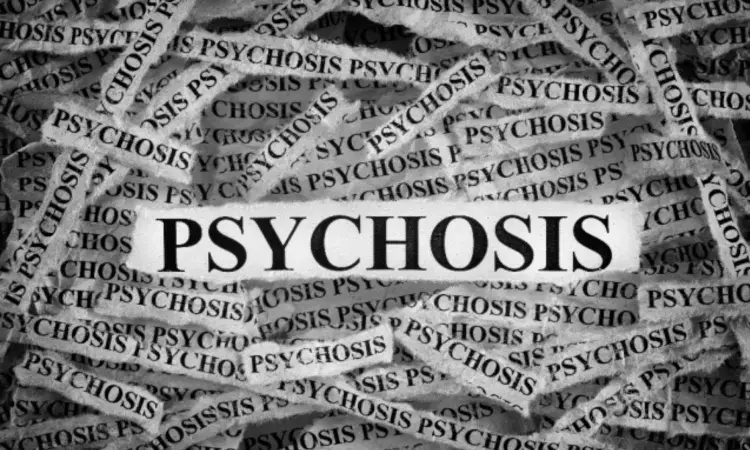- Home
- Medical news & Guidelines
- Anesthesiology
- Cardiology and CTVS
- Critical Care
- Dentistry
- Dermatology
- Diabetes and Endocrinology
- ENT
- Gastroenterology
- Medicine
- Nephrology
- Neurology
- Obstretics-Gynaecology
- Oncology
- Ophthalmology
- Orthopaedics
- Pediatrics-Neonatology
- Psychiatry
- Pulmonology
- Radiology
- Surgery
- Urology
- Laboratory Medicine
- Diet
- Nursing
- Paramedical
- Physiotherapy
- Health news
- Fact Check
- Bone Health Fact Check
- Brain Health Fact Check
- Cancer Related Fact Check
- Child Care Fact Check
- Dental and oral health fact check
- Diabetes and metabolic health fact check
- Diet and Nutrition Fact Check
- Eye and ENT Care Fact Check
- Fitness fact check
- Gut health fact check
- Heart health fact check
- Kidney health fact check
- Medical education fact check
- Men's health fact check
- Respiratory fact check
- Skin and hair care fact check
- Vaccine and Immunization fact check
- Women's health fact check
- AYUSH
- State News
- Andaman and Nicobar Islands
- Andhra Pradesh
- Arunachal Pradesh
- Assam
- Bihar
- Chandigarh
- Chattisgarh
- Dadra and Nagar Haveli
- Daman and Diu
- Delhi
- Goa
- Gujarat
- Haryana
- Himachal Pradesh
- Jammu & Kashmir
- Jharkhand
- Karnataka
- Kerala
- Ladakh
- Lakshadweep
- Madhya Pradesh
- Maharashtra
- Manipur
- Meghalaya
- Mizoram
- Nagaland
- Odisha
- Puducherry
- Punjab
- Rajasthan
- Sikkim
- Tamil Nadu
- Telangana
- Tripura
- Uttar Pradesh
- Uttrakhand
- West Bengal
- Medical Education
- Industry
Rare case of psychotic episode triggered by antibiotics exposure- A report

Acute psychosis following antimicrobial use has been rarely described in literature. A recent case report by Arain et al., published in Hindawi Journal, describes a 26-year-old woman with no previous psychiatric history who presented with symptoms and signs suggestive of acute psychosis shortly after initiating a postprocedural combination of antimicrobials which improved with culprit drugs’ withdrawal.
The above patient was pregnant (end of the first trimester), and had started to experience vaginal bleeding while traveling. She was taken to the nearest hospital, where she underwent dilation and curettage (D&C) due to miscarriage and was started on 2 antibiotics (amoxicillin-clavulanate and metronidazole).
She was then discharged with advice to continue on both antibiotics for a total duration of 7 days. The patient started showing signs of paranoia, anxiety, excessive fear, olfactory, visual and auditory hallucinations, religious utterances, nightmares, and a complete lack of sleep, approximately 24-48 hours after starting antibiotic treatment. She did not sleep or eat for 3 days. On day 6, she stopped taking her antibiotics but her condition continued to worsen because of which she was hospitalised.
Full medical and neurological workup revealed no significant findings. She was administered antipsychotic and anti-anxiety medications. Gradually her condition improved and she was discharged home on olanzapine 10mg at bedtime with a follow-up within a week.
There are evidences suggesting a direct relationship between acute psychosis and antibiotic exposure. “Hoigné syndrome” describes psychotic reactions such as visual and auditory hallucinations and multiple delusions in patients being prescribed penicillin.
A hypothesis suggests that it could be due to the direct impact of antibiotics on neurotransmitter function or modulation of cytokine production. Cytotoxic and vasogenic edema and its inhibitory effect on the GABA receptor are all possible mechanisms associated with neurotoxicity symptoms in patients on metronidazole.
Beta-lactam classes, including penicillin, cephalosporin, and carbapenems, have been reported to cause neurotoxicity by acting as GABA-A antagonist. The neuropsychiatric adverse effect of beta-lactam includes seizures, hallucinations, delirium, and psychosis. The psychotic or manic symptomology is also referred to as “antibiomania” and is defined as a condition where the patient develops psychotic symptoms, specifically mania, upon initiation of antibiotics and later returns to a normal state upon treatment discontinuation.
This patient did not report any other psychosocial stressor or another confounding factor at the onset of this acute psychotic episode. Differential diagnosis included ruling out metabolic issues such as hypoglycemia, electrolyte imbalance, system organ failure, physical trauma (head injury), dehydration, malnutrition, anemia, and delirium on the basis of clinical presentation, and laboratory results.
But it can be implied that antibiotic treatment has a strong correlation with the patient’s onset of an acute psychotic episode. Metronidazole and amoxicillin/clavulanate are vastly used antibiotics, and therefore it is important to continue reporting these “real” medical case reports as it will help improve early recognition and patient care.
Source: Case Reports in Psychiatry, Hindawi Journal: https://doi.org/10.1155/2023/9996763
M.B.B.S, M.D. Psychiatry
M.B.B.S, M.D. Psychiatry (Teerthanker Mahavir University, U.P.) Currently working as Senior Resident in Department of Psychiatry, Institute of Human Behaviour and Allied Sciences (IHBAS) Dilshad Garden, New Delhi. Actively involved in various research activities of the department.
Dr Kamal Kant Kohli-MBBS, DTCD- a chest specialist with more than 30 years of practice and a flair for writing clinical articles, Dr Kamal Kant Kohli joined Medical Dialogues as a Chief Editor of Medical News. Besides writing articles, as an editor, he proofreads and verifies all the medical content published on Medical Dialogues including those coming from journals, studies,medical conferences,guidelines etc. Email: drkohli@medicaldialogues.in. Contact no. 011-43720751


